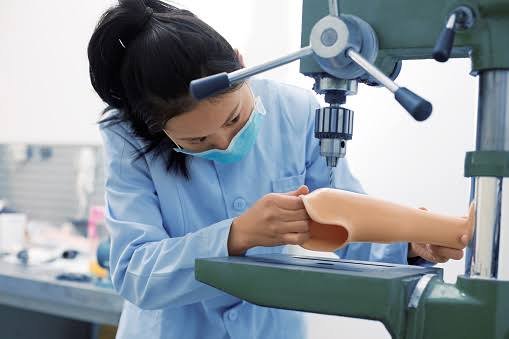Biomedical engineering is an interdisciplinary domain that amalgamates principles of engineering with the medical sciences, aiming to advance healthcare technology and medical devices. The prospects of pursuing this field in South Africa are multifaceted, encompassing educational requirements, career trajectories, and the broader impact on society. This article delineates the essential aspects of biomedical engineering, highlights academic pathways, explores diverse fields within the discipline, and underscores the paramount importance of this profession in a developing nation.
Educational Pathways in Biomedical Engineering
To embark on a career in biomedical engineering, aspiring students must navigate a robust educational framework. In South Africa, several esteemed universities offer specialized degrees in biomedical engineering. These programs typically combine rigorous coursework in engineering fundamentals such as mechanics, thermodynamics, and materials science, with critical modules in biology, human anatomy, and physiology.
In particular, institutions like the University of the Witwatersrand and Stellenbosch University provide comprehensive undergraduate degrees in biomedical engineering. Students can expect a curriculum that integrates theoretical knowledge with practical applications. Moreover, the pursuit of postgraduate studies such as Master’s and Doctorate degrees is increasingly popular, enabling further specialization and research opportunities in areas such as medical imaging, biomaterials, and rehabilitation engineering.
The Professional Landscape
The career possibilities for biomedical engineering graduates in South Africa are diverse and dynamic. Graduates can find themselves working in various sectors, including healthcare, research institutions, and manufacturing companies that produce medical devices. The increasing demand for skilled professionals in these areas is fueled by the ongoing advancements in technology and a growing emphasis on innovative healthcare solutions.
Many biomedical engineers work closely with healthcare practitioners to design and optimize medical devices, ranging from simple prosthetics to complex diagnostic machines. Some graduates may also engage in regulatory affairs, ensuring compliance with local and international standards for medical products. The burgeoning field of telemedicine and digital health is also creating new roles, integrating engineering with innovative software solutions for patient care.
Interdisciplinary Collaboration
A hallmark of biomedical engineering is its reliance on interdisciplinary collaboration. Professionals in this field often find themselves liaising with experts from various domains. For instance, working in concert with physicians ensures that designs and innovations are aligned with clinical needs, while collaborations with material scientists can yield breakthroughs in biocompatibility and device longevity.
This collaborative ethos extends beyond the confines of the laboratory or clinic. Biomedical engineers are frequently called upon to engage with patients, providing insights that bridge the gap between complex engineering concepts and practical healthcare scenarios. This role not only enhances the patient experience but also fosters a deeper understanding of user-centered design in medical technology.
Ethical Considerations
As with any engineering discipline, ethics play a crucial role in the practice of biomedical engineering. Bioethical considerations encompass a variety of issues, including the implications of medical device failures, patient consent, and access to healthcare technology. Biomedical engineers must be well-versed in ethical frameworks to guide their decisions, ensuring that innovations contribute positively to society without compromising patient safety or autonomy.
South Africa, with its unique socio-economic challenges, calls for particular attention to these ethical dimensions. Engineers in this field should advocate for equitable access to medical technologies, addressing disparities in healthcare that disproportionately affect marginalized communities. This advocacy can inform product development, ensuring that solutions are more inclusive and considerate of diverse patient populations.
The Future Outlook
The trajectory of biomedical engineering in South Africa is promising, underpinned by a growing acknowledgement of the role that technology can play in enhancing healthcare delivery. As public health challenges arise, including the impact of diseases such as HIV/AIDS and tuberculosis, biomedical engineers will be tasked with devising innovative interventions.
Emerging technologies, including artificial intelligence and robotics, are on the cusp of revolutionizing the field. Their integration into biomedical systems promises enhanced diagnostics, personalized medicine, and improved surgical outcomes. Therefore, staying abreast of these developments and engaging in lifelong learning is essential for professionals within this discipline.
As educational institutions pivot towards incorporating cutting-edge technology and research opportunities into their curricula, students entering the field will be better equipped to meet the evolving demands of the healthcare landscape.
Conclusion
To conclude, biomedical engineering represents a viable and impactful career option within South Africa’s academic and professional environment. The fusion of engineering principles with medical applications not only facilitates technological progress but also addresses critical health challenges faced by society. As the field continues to evolve, driven by innovation and an ethos of collaboration, the future holds significant potential for those who choose to embark on this rewarding career path. It is imperative for prospective students and current practitioners alike to engage with the ethical, practical, and technological dimensions of the profession, ensuring that their contributions are meaningful, sustainable, and beneficial to the society at large.








